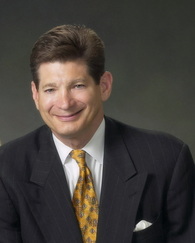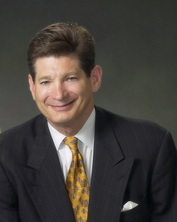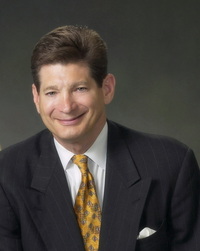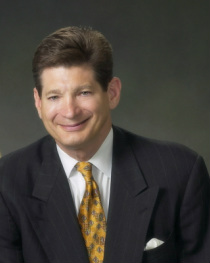by Chris Moss CPA
Welcome to TaxView with Chris Moss CPA Tax Attorney
There are 23 States and the District of Columbia that have legalized Marijuana for medicinal use, with Colorado, Washington, Oregon and Alaska allowing legal recreational use as well. Previous articles on Marijuana Income Tax Law and IRS or State Law for Medical Marijuana need updating due to IRS Marijuana Tax Audits the Government is sending over to California and Colorado in early 2016 . If you are in the retail, wholesale, growing, or distribution side of the Marijuana industry, you are going to be faced with an almost certain annual IRS Marijuana Tax Audits of your 2015 business and personal tax returns, so stay with us here on TaxView with Chris Moss CPA Tax Attorney to learn how to best protect your Marijuana business from adverse Government action when the IRS Marijuana Tax Audit hits your business
IRS Code Section 280E allows no income tax deduction for any trade or business dealing in Federal scheduled controlled substances, and herein lies the problem for anyone connected with the Marijuana industry. Even if your State has legalized Marijuana, Government enforcement of Section 280 still results in draconian amounts of tax owed by business owners after an IRS Marijuana Tax Audit. That is until California Helping to Alleviate Medical Problems known as CHAMP decided to fight back. After Champ was audited by an IRS Marijuana Tax Audit in 2002, the Government determined that all of CHAMP’s expenses including its Costs of Good Sold, were nondeductible under Section 280E in connection with the trafficking of a controlled substance. CHAMP appealed to US Tax Court in CHAMP v IRS US Tax Court (2007).
The IRS argued that all of CHAMP expenses were in connection with the illegal sale of drugs and therefore all expenses were nondeductible under Section 280E. Judge Laro disagreed as to Cost of Goods Sold. Citing the Senate Finance Committee report, the Court found that Cost of Goods Sold would be exempt from 280E in order “to preclude possible challenges on constitutional grounds.” Senate Finance Report S. Rept. 97-494 (Vol. 1). In addition the Court allowed expenses for nonrelated Marijuana ancillary services for counseling and caregiving because the books and records were adequately able to separate out those expenses. Both CHAMP and IRS had partial wins.
Because CHAMP did not appeal there was no higher Court precedent until Martin Olive and his infamous California Vapor Room got hit with an IRS Marijuana Tax Audit for 2004 and 2005 disallowing all his expenses. Olive appealed to US Tax Court in Olive v IRS US Tax Court (2012). Judge Kroupa easily distinguishes Vapor Room from CHAMP in that CHAMP was a service organization with 72% of its employees working exclusively with caregiving. The Vapor Room business model stresses solely the sale and consumption through vaporization of marijuana. The Court finds for the Government concluding that Section 280E disallows all Vapor Room expenses except for Cost of Goods Sold.
Judge Kroupa of the US Tax Court found Olive’s testimony and the testimony of the other witnesses on the Cost of Goods Sold to be “rehearsed, insincere and unreliable” and also found that the ledgers were not accurate due to Olive transacting his entire business in cash. The Court noted that Vapor Room grossed at least $1.9M in 2004 and $3.3M in2005. The Court estimated Cost of Goods Sold at 75.16% of sales for 2005 based on expert testimony of Dr Gieringer that the Cost of Goods Sold of medical marijuana dispensaries ranged from 70-85% of sales resulting in a tax bill of over $1.1M for 2005 alone.
Martin Olive appealed in Olive v IRS (9th Cir California) relying again on CHAMP. The Court found Olive’s reliance on CHAMP was misplaced. CHAMP had not only of medical marijuana business, but also ran an extensive counseling and caregiving service. This is not the case in Vapor Room were the sole business of Olive was to engage in selling medical marijuana. The Court concluded that if Congress now thinks that the policy embodied in 280E is unwise as applied to medical marijuana sold in conformance with California law it can change the statute. This Court cannot. IRS wins Olive loses.
The latest Court ruling regarding Marijuana is again from California where in 2011 various individuals including Pickard were criminally indicted under 21 U.S.C. §§ 846, 841(a)(1) accused of illegally conspiring to grow 1,000 marijuana plants. Pickard moved to dismiss in 2013 on various Constitutional grounds asking for an evidentiary hearing which the Court eventually granted. Judge Mueller on April 17, 2015 denied Picard’s Motion to Dismiss and denied his Motion for Reconsideration on June 1, 2015.
Judge Mueller after careful consideration of the expert witness testimony presented at the evidentiary hearing, joined the chorus of other courts considering the same question, and concluded the issues raised by Picard are policy issues for Congress to revisit if it chooses. Judge Mueller in a brilliant conclusion opines: “At some point in time, in some Court, the record may support granting such a Motion, but after having carefully considered the facts and the law as relevant to this case, the Court concludes that on the record in this case, this is not the Court and this is not the time. US Dept. of Justice Wins, Pickard and others all lose. It appears that Pickard not appealed to the US Court of Appeals for the 9th Circuit at this time.
So as we head to 2016 there is one thing certain. Unless you are all properly prepared, the IRS Marijuana Tax Audit will be devastating to all in the Marijuana industry. What can you do now? First, the only hope of deducting expenses other than your Cost of Goods Sold is to on advice and approval of your Tax Attorney make sure those unrelated expenses are perfectly recorded through a separate LLC with QuickBooks or similar accounting software creating your books and records. Make sure your tax experts separate out revenue from those activities allocated accordingly and all cash deposits should be clearly separated in separate bank accounts if they are unrelated to Marijuana sales. Second, again on advice and approval of your Tax Attorney record all cash sales and report all income. If you cannot secure a bank willing to do business with your Marijuana cash business then create again with consent of your Tax Attorney a Management LLC to accept the cash with the offset to management fees. Finally you will most certainly be subject to annual IRS Marijuana Tax Audits, so make sure when you file your tax return you have your Tax Attorney who prepares your return ready to represent you on the IRS Marijuana Tax Audit, all the way up to the US Tax Court and Federal Appeals Court if necessary. In conclusion, it appears until Congress changes the law, it is not going to be as easy as you all thought years ago, but at least you have now a fighting chance of at least partially winning the battle against the IRS Marijuana Tax Audit sure to come your way soon.
Thanks for joining us on TaxView with Chris Moss CPA Tax Attorney
See you next time on TaxView
Kindest regards
Chris Moss CPA Tax Attorney









 RSS Feed
RSS Feed


